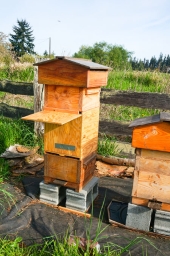
 7
7




Come join me at www.peacockorchard.com
 8
8




Argue for your limitations and they are yours forever.
 5
5




find religion! church
kiva! hyvä! iloinen! pikkumaatila
get stung! beehives
be hospitable! host-a-hive
be antisocial! facespace
 4
4




Come join me at www.peacockorchard.com

 2
2




find religion! church
kiva! hyvä! iloinen! pikkumaatila
get stung! beehives
be hospitable! host-a-hive
be antisocial! facespace
 1
1




-- Wisdsom pursues me but I run faster.




-- Wisdsom pursues me but I run faster.




-- Wisdsom pursues me but I run faster.
 4
4





|
My favorite is a chocolate cupcake with white frosting and tiny ad sprinkles.
Learn Permaculture through a little hard work
https://wheaton-labs.com/bootcamp
|



